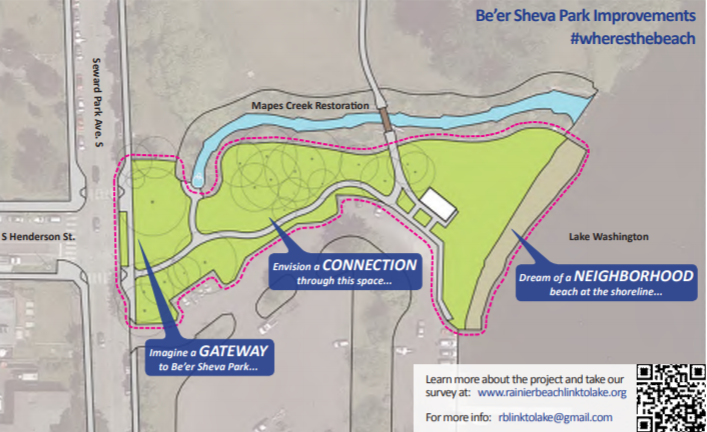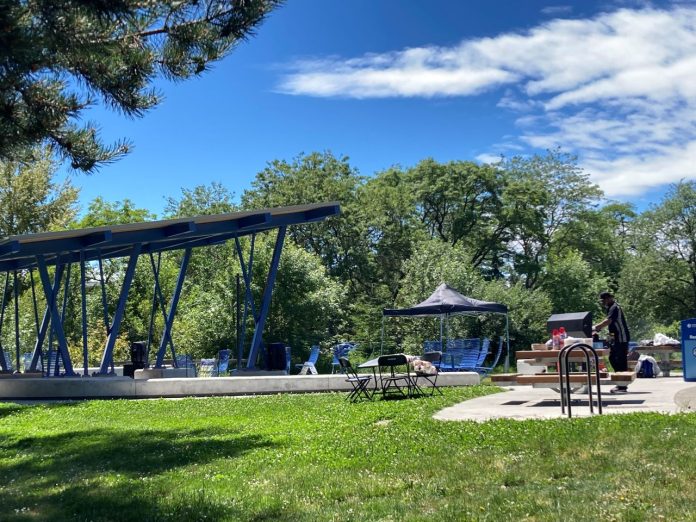
On a warm Sunday afternoon in June, Be’er Sheva Park hums with activity. Notes of R&B float out of the speaker system, while savory aromas waft out of the grills by the waterfront. Kids splash in Lake Washington as their parents do yoga in the grass.
But it wasn’t always like this. Sally Li, a longtime Rainier Beach resident who launched the advocacy group Link2Lake in 2016 to fight for a revitalized Be’er Sheva, recalls that the park had deteriorated since she played there as a kid in the 1990s. Overgrown foliage obstructed the shoreline, blocking the view of the park from Henderson Street, the neighborhood’s main thoroughfare. Even the picnic tables and benches all but disappeared.
Planning a better park
Gregory Davis, the Managing Strategic Advisor at local non-profit Rainier Beach Action Coalition (RBAC), recalls that after the 2008 financial crisis, parks funding dried up, exacerbating Be’er Sheva’s woes.
“I would say that this park has been plagued with under-investment,” said Li. “In some ways, it was under-utilized, but the people who utilized it definitely loved the heck out of it. It’s always been a community space. You go down there and you always see people you know and say hi, and everyone talks to each other. It just seems like a really cool microcosm of South Seattle.”
When Li and other community members came together to help draft the 2012 Rainier Beach Neighborhood Plan, a renovated Be’er Sheva emerged at the top of their wishlist. The final plan pledged to “improve park furnishings in Beer Sheva” and create pedestrian connections between the park and other recreation sites, like Pritchard Beach and the former Atlantic City Nursery site.
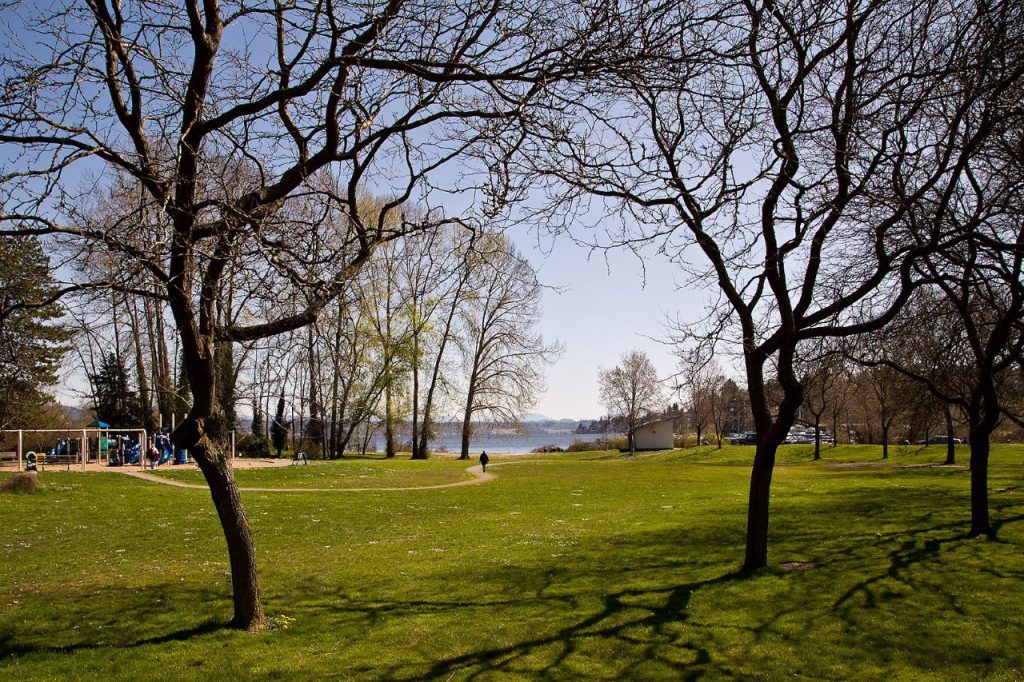
To secure funding, Li formed Link2Lake and created community buy-in with fun, inclusive programming. She hosted Link2Lake events at her house in Rainier Beach, complete with dinner and cocktails. A series of “design parties” produced the 2018 Schematic Design Report. Meanwhile, RBAC conducted outreach through its annual Back 2 School Bash and semi-quarterly Town Hall events.
“Maybe you would just come for the food and the music, and then we happen to be there, and we tell you about the park,” Li explained. “I think we’ve got so many people across the board that really, truly feel like, ‘Hey, I showed up to these meetings. This is a park I helped design.’”
Fast-forward to April 2024, and the tireless advocacy had paid off: the grand opening of the renovated park featured a new community stage, artworks, a restored shoreline, and, yes, picnic tables and benches. Li handed out free Jamaican jerk chicken plates to passersby. Community events have flourished, including the weekly Chocolate Sunday celebration of Black culture. The cultural stage is booked through August.
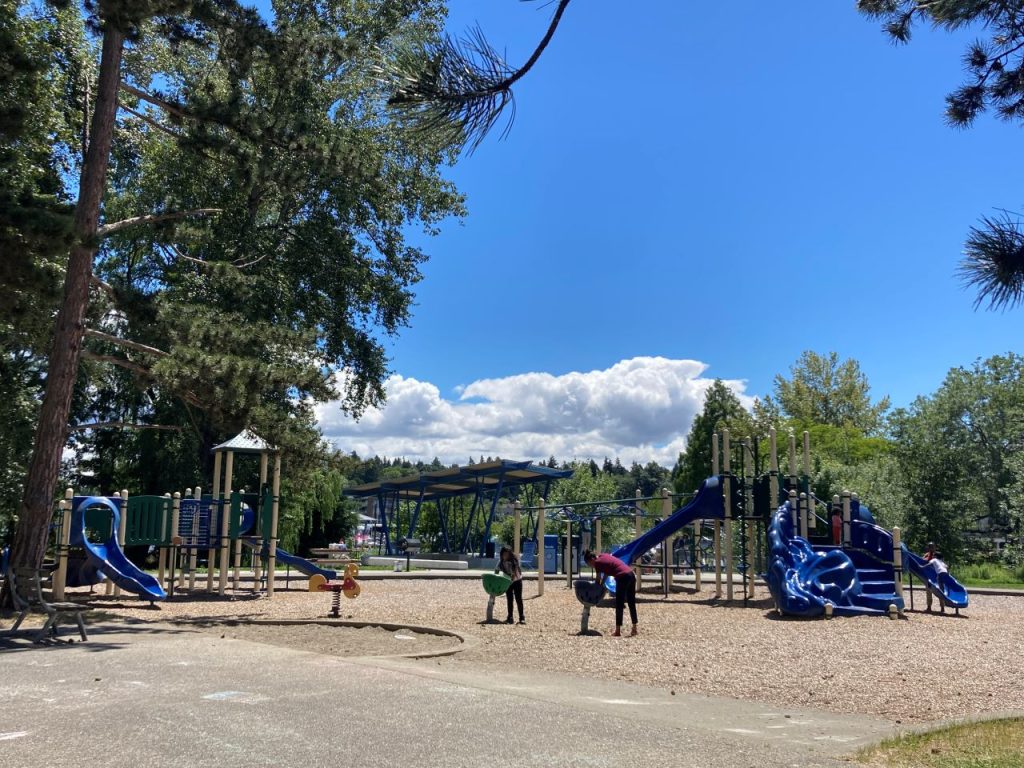
More lighting and “limbed-up” or pruned trees has enhanced visibility and added to a feeling of safety, said Li. Seattle Police Department (SPD) data suggests that safety incidents and noise complaints have decreased at Be’er Sheva following the renovation, Li said.
A recent Seattle Times op-ed called out “graffiti, trash and violence” at Be’er Sheva Park prior to the renovation. However, Davis pointed to the Rainier Beach ABSPY Fall 2023 Quarterly Crime Report, prepared by a non-profit in collaboration with SPD, which pinpointed an apartment complex near the park — rather than the park itself — as an incident hot spot.
What’s next for the project?
The next phase of renovations, Phase II, involves refurbishing the play area, adding a fitness zone, and resurfacing the basketball court. The work is funded by the Parks Department and a matching grant from the Washington State Recreation and Conservation Office (RCO), said Parks Department Project Manager Shaquan Smith. Right now, the department is soliciting ideas by tabling at community events, including Juneteenth and Chocolate Sundays.
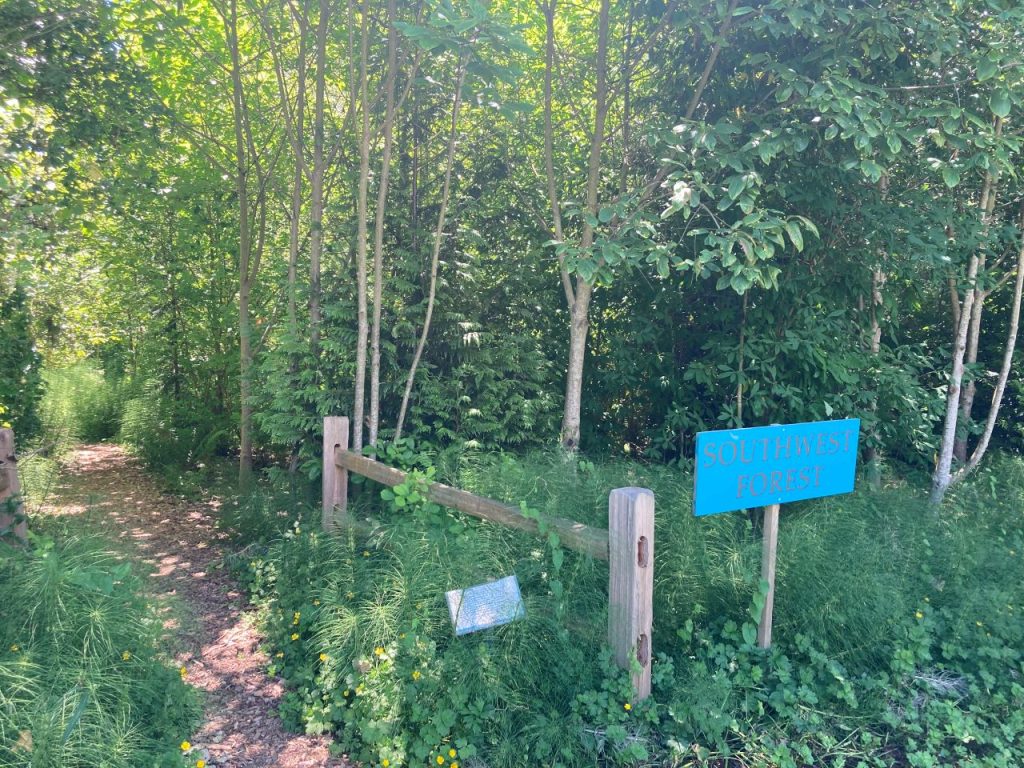
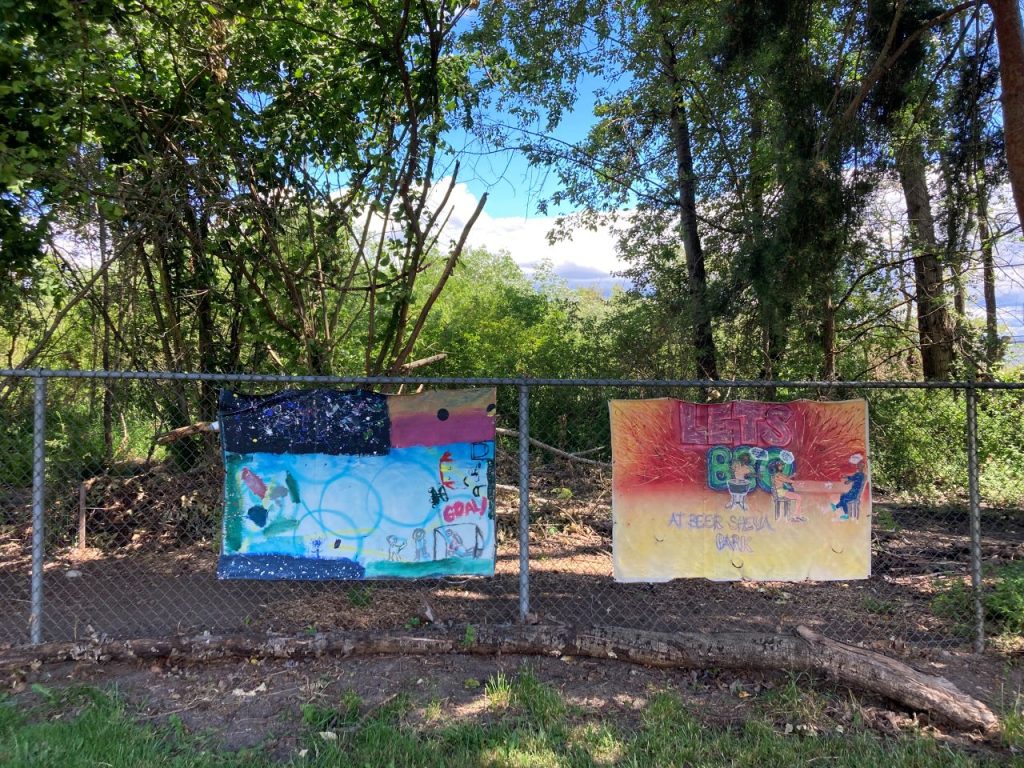
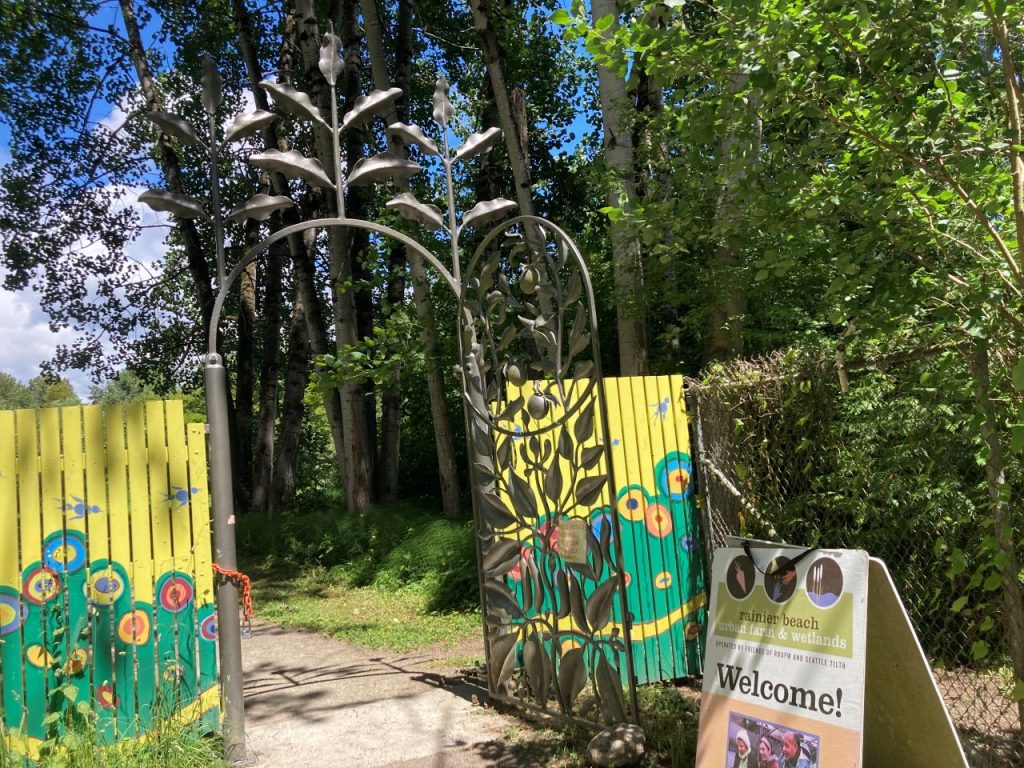
Residents can also fill out an online survey to share their vision on everything from the type of playground equipment to its color. Then, sometime in August, the Parks Department will present several design options from the firm Site Workshop based on community feedback. Either in late summer or early fall, residents will have the chance to weigh in on the initial design schematic selected by the Parks Department.
A key priority is to create a space that’s inviting for all age groups, said Smith. “You have the play area for the youth, the exercise area that can be used for older adults or just the general public, and the basketball court as well. We’ve heard from affected teens [that] they age out of the play area, so where is the space for them? So it’s a way to have more activation and play for all different types of groups.”
Residents have shared other wishlist items, which don’t yet have funding attached, including: more shade, especially in the play area; a spray park to cool off in the warmer months; and more art installations. For Smith, art presents an ideal opportunity to celebrate the identity of Rainier Beach.
“There’s a lot of gentrification, a lot of displacement, a lot of community members are in and out of the community, and it’s like, where does that history go? Where does that culture go? And how is that being maintained, and how can that be reflected? So that’s something we are trying to incorporate in our project,” he said.
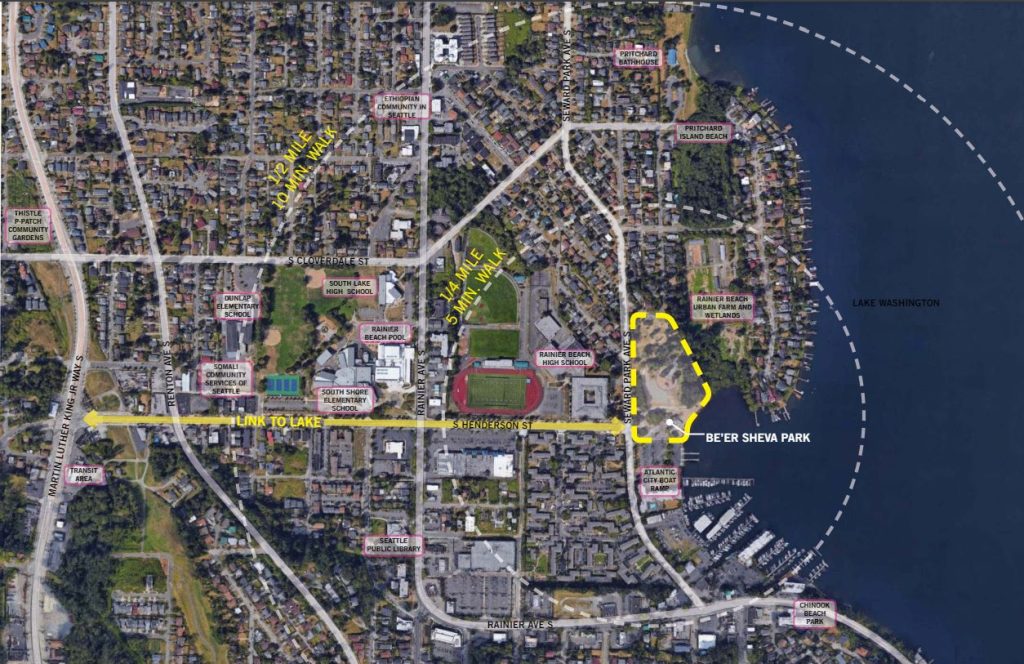
For Davis’ part, he sees Be’er Sheva as part of a broader mission to spur economic prosperity in the neighborhood. More barbeque pits can help Rainier Beach become a Food Innovation District, while salmon habitat restoration work could provide job opportunities to Rainier Beach High School students. RBAC frames the renovation as a key component of the ongoing Recreating Henderson Street project to activate the corridor between Lake Washington and the light rail station and improve traffic safety. Davis cites Los Angeles’ Destination Crenshaw as an inspiration.
“The park represents that gathering space, that place that people can replenish themselves, that people can be in community together, and have their well-being supported,” Davis said. “To us, a beautiful neighborhood is a safe neighborhood.”
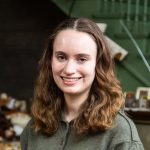
Alison Jean Smith
Alison Jean Smith is the Local Sightings Director at Northwest Film Forum, a member of the TeenTix Alumni Advisory Board, and a contributor to REDEFINE, an online magazine where she interviews both emerging and established filmmakers. She has also had her writing published in The Stranger, The South Seattle Emerald, and on the doubleXposure podcast website. Topics she’s covered range from wild horse training to debates over light rail. She is currently studying communication at the University of Washington.


